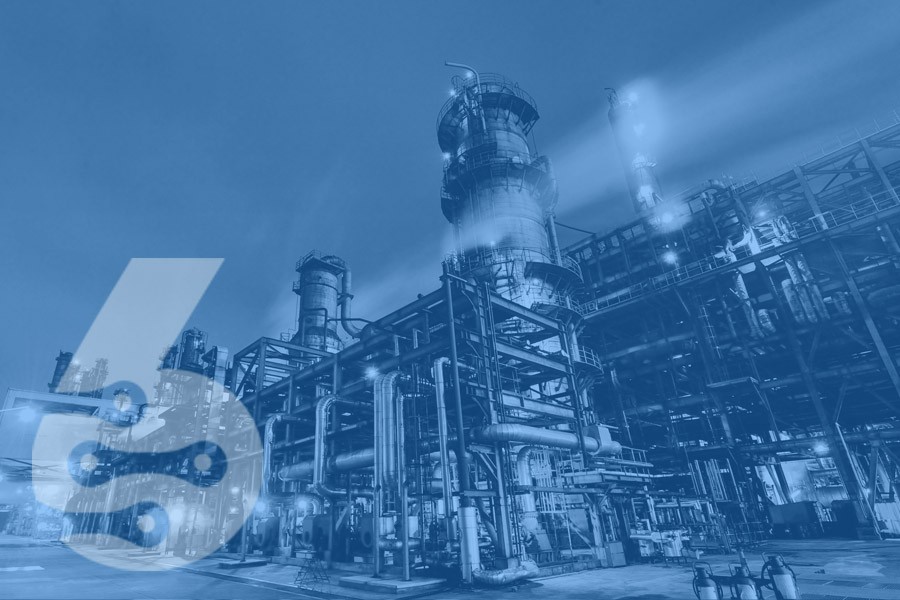- ERP Systems
- 27.07.2022
Top 20 Industries That Need ERP Systems The Most
Industries most receptive to resource planning and automatization
Ovanes "Max" Harutyunan
27.07.2022
“ Optimizing a business function is futile and non-value-added if it is not part of a revenue/competitive business process. “
ERP systems are essential for many businesses, but certain industries can benefit more from their use than others. ERP systems offer several advantages to companies, including increased efficiency, improved decision-making capabilities, and enhanced communication. While all industries can benefit from these advantages, some industries stand to gain more from ERP implementation than others. The following are 20 industries that need ERP systems the most to survive and thrive:
Manufacturing
ERP systems are essential for manufacturing companies because they help to manage the production process and keep track of inventory levels. ERP systems can also help automate manufacturing, increasing efficiency and productivity.
Manufacturing is a critical part of the global economy, and ERP systems ensure that factories operate smoothly and efficiently. By automating key processes and tracking inventory levels, ERP systems help to improve production times and reduce waste. In addition, ERP systems can provide important insights into how a factory is performing, allowing managers to make better decisions about improving operations.
Retail
The retail industry is one of the largest industries in the world. Retailers rely on ERP systems to manage inventory levels, track sales data, and provide customer service. ERP systems can also help retailers to create targeted marketing campaigns and to improve their overall operations.
ERP systems are essential for retailers because they help to manage the sales process and keep track of inventory levels. ERP systems can also help retailers automate sales, increasing efficiency and productivity.
Less Hassle, More Growth – The SIX ERP Way.
Wholesale Distribution
ERP systems are essential for the retail and wholesale distribution industries because they help to manage the sales process and keep track of inventory levels. ERP systems can also he wholesalers automate the sales process, leading to increased efficiency and productivity. However, they must be tailored to the needs of the specific wholesale industry. For example, wholesale distributors need systems that can manage purchase orders and invoices, track inventory levels and customized offers, and automatic supply chain integration is important. This means that ERP systems should be able to interface with other software applications used in the distribution industry, such as shipping software.
Professional Services
Enterprise resource planning (ERP) software is critical for businesses in the professional services industry. ERP systems can help these companies manage their finances, operations, projects, and customer relationships. ERP systems can automate many tasks employees perform in the professional services industry, improving efficiency and reducing costs. ERP systems can also help businesses track customer interactions and sales opportunities, which can help them better serve their customers. In short, ERP systems can help businesses in the professional services industry improve their productivity and competitiveness.
High-Tech Companies
ERP systems are particularly important for high-tech companies. They help these businesses keep track of their inventory, manage their resources, and coordinate their operations. Most high-tech companies already run on ERPs, and ERP systems continue to become more sophisticated and comprehensive. ERP systems help these businesses stay competitive by allowing them to make the most efficient use of their resources by leveraging technology.
Construction
The construction industry is in dire need of ERP systems to keep up with the competition. With the inclusion of BIM, ERP systems can help manage construction projects more effectively and efficiently. However, the adoption rate for ERP systems in the construction industry is low, primarily due to the cost and complexity of implementing these systems. ERP systems can help manage budgets, resources, and schedules, as well as track progress and performance.
Banking and Financial Services
Enterprise Resource Planning (ERP) systems are used in the banking and financial services industry to manage complex processes. ERP systems help banks to streamline their operations and to improve customer service. ERP systems also help banks to comply with regulations and to protect against fraud. In addition, ERP systems can help banks to reduce costs and to improve profitability.
Industrial Services
ERP systems are vital for companies in the industrial services industry. These systems help track and manage data effectively, increasing efficiency and productivity. In addition, ERP systems can help companies save money by improving inventory management and tracking employee hours.
Telecommunications
A good ERP system can help telecommunications companies become more efficient and automate most tasks to compete in the market due to price pressure. ERP systems allow for real-time monitoring of business processes, which can help identify and resolve any issues that may arise. Additionally, ERP systems can help automate tasks, such as order entry and billing, which can help reduce processing time and improve accuracy. By automating these tasks, telecommunications companies can focus on more important initiatives, such as expanding their customer base and improving their products and services.
Media and Publishing
The media and publishing industry is constantly changing. With the advent of new technologies, the industry has had to adapt. ERP systems have been a big help in this process. ERP systems allow for integrating different platforms, which helps automate many tasks. This means that the media and publishing industry employees can focus on their core competencies, which is essential in a fast-paced industry like this.
Non-Profit Organizations
Non-profit organizations, or NPOs, are a vital part of every community. Their work is often thankless, and they often have to operate on a shoestring budget. ERP systems can help these organizations become more efficient and use their funds better. ERP systems can help track donations and expenses, manage volunteers, and keep track of donations. This can help NPOs become more effective and efficient and focus on their important work.
Hospitality
ERP systems play a huge role in the hospitality industry by automating many manual tasks and lowering costs. By automating many of the tasks done manually, such as reservations and billing, ERP systems help speed up the process and make it more efficient. This can save the hospitality industry a lot of money in the long run and make booking reservations easier. ERP systems can also help to keep track of inventory and supply levels, ensuring that there is always enough stock to meet customer demand.
Logistics and Transportation
Efficient software systems are essential for logistics and transportation companies. They help manage the flow of goods and materials, track inventory, and coordinate transportation. ERPs can also help companies optimize their shipping routes and schedules and improve customer service.
Government
Governments can use ERP systems to manage employee data, track financial data, and automate many operations. These systems can also help governments and government agencies to comply with regulations and manage risk more effectively without adding additional complexity. ERP systems can be used to manage tax money more efficiently and transparently. This can help to prevent fraud and ensure that tax money is spent appropriately.
Healthcare
ERP systems can be extremely beneficial in the healthcare industry. They can help to integrate patient data, automate tasks, and take the administrative load off of nurses and doctors. This gives nurses and doctors more time to focus on patients and their care. Additionally, ERP systems can help to ensure that patient information is accurate and up-to-date. This can help to improve patient care and safety.
Automotive
The automotive industry is the classic example of using ERP systems to manage stocks, inventory, and production but also integrate with other companies, automate sourcing, and more. The main advantages of using ERP software in this sector are that it can help improve communication and collaboration between different parts of the supply chain, reduce processing times, and improve overall efficiency. This, in turn, can help to improve customer service, speed, and competitiveness.
Metal and Steel
Metal and steel companies can use ERP systems to become more efficient by tracking inventory, scheduling production, and managing billing and invoicing. An ERP system can help these companies streamline their operations and improve their bottom line.
Oil and Gas
Oil and gas companies are spread out all over the globe. This makes it difficult to manage and keep track of all the different parts of the business. An ERP system can help oil and gas companies to be more agile so that they can make changes quickly in response to fluctuations in the market. ERP systems can also help companies monitor their operations, quickly identifying and correcting any problems. Finally, ERP systems can help oil and gas companies to use data to improve their operations. By analyzing data from their operations, oil and gas companies can decide where to invest money and how to improve their processes.
Chemicals
Chemical and odor-producing companies are one of the most classic examples of using ERP systems. They can help inventory, track production, and manage sales and customer relationships. Additionally, ERP systems can help with process improvement and regulatory compliance. Overall, ERP systems can help chemical companies run more efficiently and effectively.
Food and Beverage
ERP systems are critical for food and beverage companies as they help manage inventory, production, and sales. By tracking all of the data related to these areas, ERP systems help companies produce the right products, sell them at the right price, keep track of their stock plus avoid spoilage. In addition, ERP systems can help with quality control and traceability, two of the most important aspects of the food and beverage industry.
This can be especially important in the food and beverage industry, where margins can be tight, and a small mistake can lead to a big loss.
Education
ERP systems are becoming increasingly important in the education field. One of the main benefits of using an ERP system in an educational setting is that it can help to free up time for the administration. This is because an ERP system can automate many administrative tasks, such as attendance tracking, grading, and student transcripts. As a result, the administration can spend more time on important tasks, such as working with students and planning the curriculum.
Another benefit of using an ERP system in education is that it can help to improve communication between teachers and administrators. For example, if a teacher needs approval for a new assignment, she can easily send a request to the administration through the ERP system. This can help to streamline the approval process and improve communication between teachers and administrators.
Finally, using an ERP system in education can help to improve efficiency and accuracy. For example, an ERP system can automate grading calculations, which can help to ensure accuracy. Additionally, an ERP system can help to track student progress over time, which can help to improve efficiency by allowing educators to see which concepts students are struggling with and need more attention.
Conclusion
Most search for ways to improve data visibility, automation, costs, efficiency, and consistency. While there is no one-size-fits-all answer for every business, the key to a successful ERP implementation is ensuring that the system can be tailored to meet the industry's specific needs.
If you're looking for an ERP system that can meet the specific needs of your industry, contact SIX Management Solutions today. We have experience implementing ERP systems into businesses across all industries and can help you find the right ERP solution for your needs.
Additionally, we offer free demos so you can see how our ERP system can work for your business.
Contact us today to book a demo!
About the author
Ovanes Harutyunan has always had a passion for dealing with people. After studying hospitality Management, he worked in the United Kingdom for several years and gained extensive experience in Management Training. He then found a new passion for IT and IT Sales, working in solutions sales for many years. Since 2022, Ovanes "Max" has been a sales and business development professional at SIX Management Services, focused on SME and Enterprise ERP systems.
In his free time, Ovanes likes being outdoors. He is a huge fan of Cuban culture and music and you can see him regularly dancing salsa with a massive smile on his face. Whenever he feels like slowing down, he enjoys listening to jazz, or visiting a theatre or cinema. Ovanes is also a foodie, enjoys cooking almost as much as eating.
Related articles

Agentic AI + MCP: The New Nerve Center of ERP
Agentic AI is the next step after large language models learned to read and write. Instead of waiting for a user to ask something, an agent can set a goal,...
Beyond the Dashboard:
The term “data-driven” has become a cornerstone of modern business discourse. Yet, for many organizations, the promise of data-fueled success remains elusive. Despite billions invested in sophisticated analytics platforms, a...



